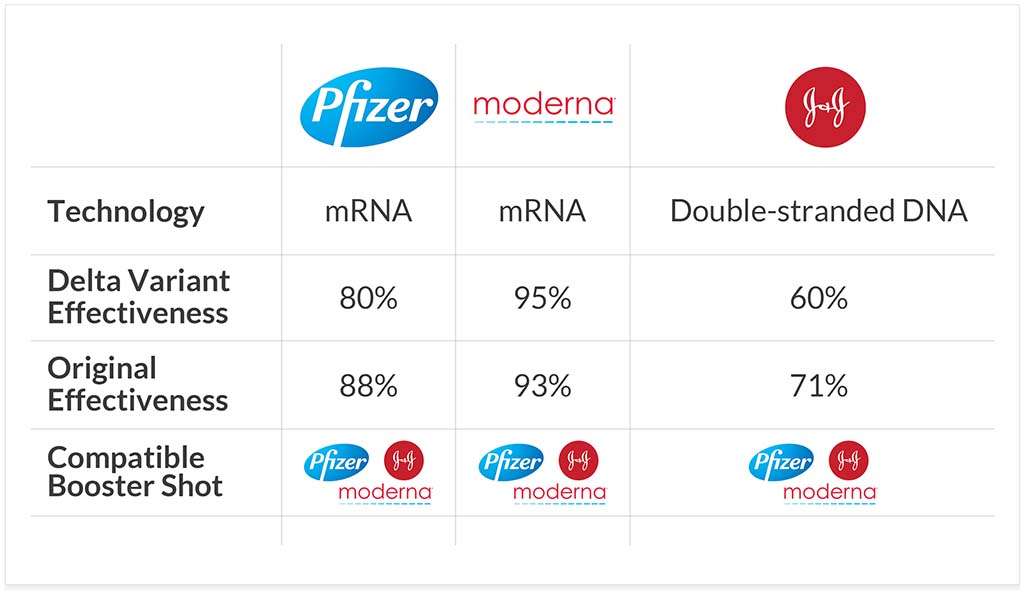Omicron BA.1 vs BA.2
BA.2 is the latest subvariant of Omicron and the dominant strain of the SARS-CoV-2 virus that causes COVID-19 – making up 23% of all...
Posted on November 1, 2021
COVID Boosters
Evidence indicates that immunity from any of the initial COVID-19 vaccines can wane and weaken over time. A booster shot enhances the effectiveness of your original vaccination dose and boosts immunity against COVID-19 and its Delta variant which has demonstrated greater infectiousness, even among vaccinated persons. J&J was found to be 60% effective at preventing Delta hospitalization, Pfizer 80%, and Moderna 95%.
Nevertheless, you still have a good degree of protection with the original dose: J&J is 71% effective at preventing hospitalization, Pfizer 88%, and Moderna 93%.

The FDA supports the “mix and match” approach, meaning that your booster shot doesn’t need to be the same drug used for your initial vaccination. For example, if your first COVID vaccination was with J&J, you are eligible for a booster from J&J, Moderna, or Pfizer (if you meet the qualifying criteria).
If your original vaccination was with Moderna or Pfizer, you are also eligible for a booster from J&J, Moderna, or Pfizer (again, assuming you meet the qualifying criteria).
Side effects from a booster shot are much the same as those from the initial vaccination such as fatigue, headache, and soreness at the injection site.
Eligibility Requirements for a COVID-19 Booster Vaccination Shot If Your Original Vaccination Was with Moderna or Pfizer
Eligibility Requirements for a COVID-19 Booster Vaccination Shot If Your Original Vaccination Was with J&J
Ultimately, all vaccines are considered safe and effective, and experts suggest getting the booster that is most convenient and available to you.
Factors to Consider
Moderna and Pfizer (mRNA) have been associated with a risk of heart inflammation (myocarditis and pericarditis) mostly in males 18-25 years old. The incidence of myocarditis as a result of a COVID-19 vaccine sits around 4.8 cases for every 1 million (very, very low) and the majority of people who do experience heart inflammation tend to recover within six weeks.
The J&J vaccine has been associated with a rare blood clotting complication in women 18-49 years old called thrombosis with thrombocytopenia syndrome. Fewer than 50 cases have been reported since vaccination administration began.
If you fall outside these risk categories, some experts suggest getting a booster shot different than your initial vaccine because it could result in a more enhanced immune response. On the other hand, if you responded well to your initial vaccination with minimal side effects, you may want to stick with the same for your booster.
If you find yourself fretting over the decision, talk to a doctor who is familiar with your medical history and updated with the latest COVID-19 vaccination research. Similarly, if you’re still hesitant to get your first vaccination series, talk with an appropriately qualified professional. As a post-COVID world opens up again, don’t get left behind!
BA.2 is the latest subvariant of Omicron and the dominant strain of the SARS-CoV-2 virus that causes COVID-19 – making up 23% of all...